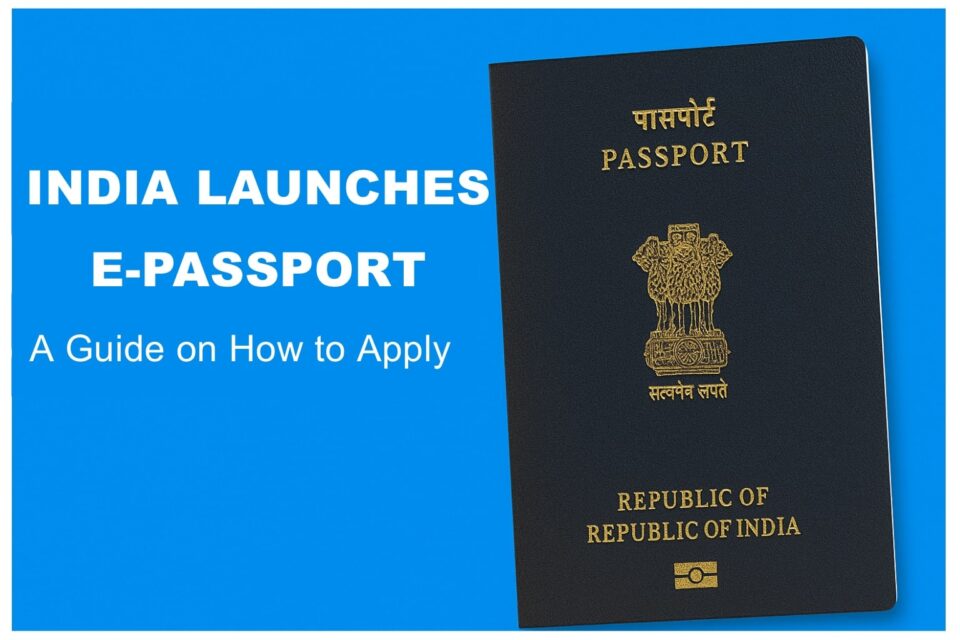India has officially launched e-Passport, a major upgrade to traditional travel documents, combining digital security with global convenience. This initiative, led by the Ministry of External Affairs (MEA) under the Passport Seva Programme 2.0, aims to modernize international travel for Indian citizens. With embedded chips and biometric data, e-Passports promise enhanced security, faster immigration, and fraud prevention—making them a game-changer in travel documentation.
What is an e-Passport in India?
An e-Passport is a chip-enabled biometric passport that securely stores the holder’s personal and biometric information in a digital format. It comes with an RFID chip embedded in the back cover, which allows for fast and secure verification at immigration checkpoints. A contactless antenna enables quick scanning of the data, and a distinctive gold symbol is featured on the front cover to differentiate it from traditional passports.
The chip securely stores data such as the passport holder’s name, date of birth, photograph, and fingerprints, which matches the printed information on the passport’s data page. This dual-layer verification helps prevent tampering and identity theft.
Top Benefits
- Improved Security: Uses Public Key Infrastructure (PKI) to encrypt and protect sensitive data.
- Faster Immigration Clearance: Enables contactless verification at airports and border checkpoints.
- Reduced Passport Fraud: Chip-based data storage makes it harder to forge or alter documents.
- Global Acceptance: Complies with ICAO standards, making it valid and recognized worldwide.
Where Are e-Passports Available in India?
As of now, e-Passports are being issued in select Indian cities such as Chennai, Hyderabad, Bhubaneswar, Surat, Nagpur, Goa, Jammu, Shimla, Raipur, Amritsar, Jaipur, and Ranchi. The rollout is being expanded in phases, with Tamil Nadu alone accounting for over 20,000 e-Passports already issued.
Who Should Get an e-Passport?
India’s e-Passport is ideal for various categories and we have listed few of them here:
- Frequent international travelers – Enjoy faster immigration clearance and enhanced security.
- Business professionals – Streamline global travel with reduced verification delays.
- Senior citizens & VIP travelers – Benefit from improved identity protection and chip-based tracking.
- New applicants & passport renewals – If you’re applying or renewing in a rollout city, you may automatically receive the e-Passport.
- Security-conscious individuals – RFID and biometric encryption help prevent identity theft and document forgery.
How to Apply
- Visit passportindia.gov.in.
- Register or log in to your account.
- Fill out the e-Passport application form.
- Choose your nearest Passport Seva Kendra (PSK) or Post Office PSK (POPSK).
- Pay the application fee online.
- Schedule an appointment for biometric data capture and document verification.
Fees and Eligibility
The fee is similar to regular passports, depending on the type (fresh, renewal, Tatkal). Both new applicants and those renewing passports are eligible. Existing passports remain valid until expiry and do not need to be replaced right away.
Passport Seva 2.0: The Digital Backbone
The initiative is part of Passport Seva 2.0, which includes:
- AI-powered service delivery
- Mobile apps like mPassport Police for faster verification
- Enhanced digital infrastructure for transparency and efficiency
External Affairs Minister Dr. S. Jaishankar highlighted that this transformation supports the government’s vision of “Seva, Sushasan, and Garib Kalyan”, contributing to a Viksit Bharat (Developed India).
Conclusion
This is a bold step toward secure, smart, and seamless international travel. With biometric security, global compatibility, and digital convenience, it’s a must-have for frequent travelers and tech-savvy citizens. Apply today and be part of India’s digital future!
Frequently Asked Questions (FAQ)
What is an e-Passport?
An e-Passport is a chip-enabled biometric passport that stores personal and biometric data digitally. It enhances security and speeds up immigration processes.
How is an e-Passport different from a regular passport?
Unlike regular passports, e-Passports contain an embedded RFID chip that stores encrypted biometric data, making them more secure and harder to forge.
How can I apply for an e-Passport?
You can apply online via the Passport Seva website, fill out the application form, pay the fee, and schedule an appointment at a Passport Seva Kendra (PSK) or Post Office PSK.
What is the fee for an e-Passport?
The fee structure for e-Passports is similar to regular passports and varies based on the type of application (normal or Tatkal).
In which cities are e-Passports currently available?
e-Passports are being issued in cities like Chennai, Hyderabad, Bhubaneswar, Surat, Nagpur, Goa, Jammu, Shimla, Raipur, Amritsar, Jaipur, and Ranchi.
Is it mandatory to switch to an e-Passport?
No, it is not mandatory. Existing passports are valid until their expiry. You can opt for an e-Passport when applying for a new one or renewing your current passport.

